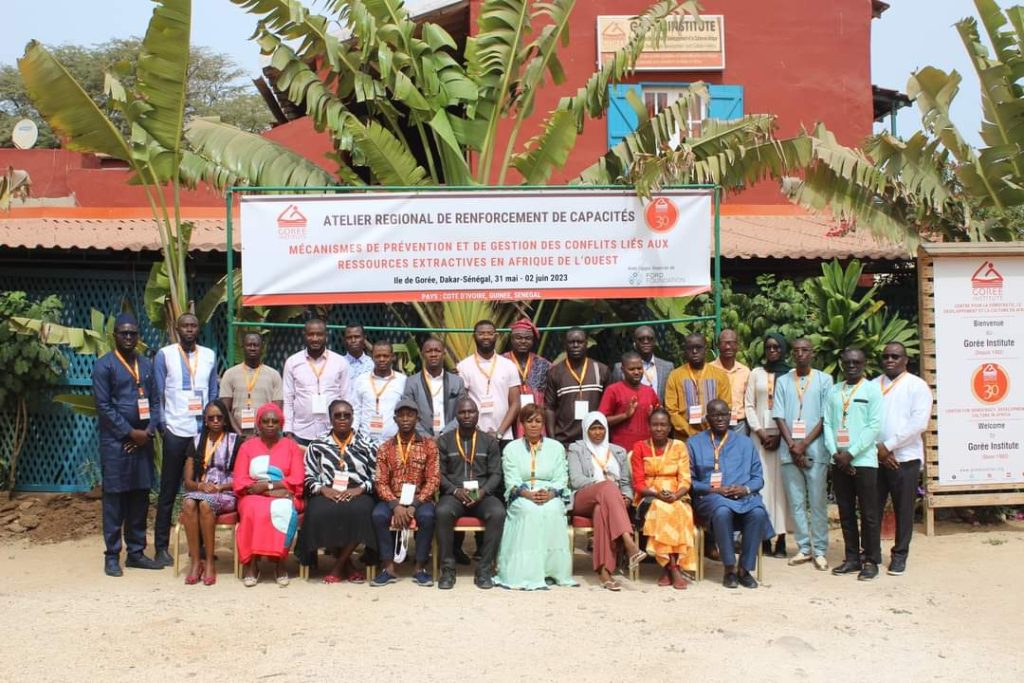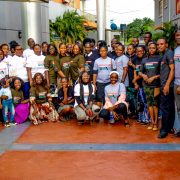Goree Institute Tasks Stakeholders on Equity in Management, Redistribution of Extractive Resources in West Africa

By Ekemini Simon
Goree Institute, a pan-African civil society organisation has tasked actors in the extractive sector, including extractive industries, government, institutions and communities across West Africa to work towards synergy for transparency and equity in the management and redistribution of resources from the extractive industries.
Goree Institute is working in Africa to contribute to the establishment of peaceful, just and self-sufficient societies, strengthen political dialogue for the peaceful resolution of conflicts,contribute to the consolidation of democratic processes and institutions, and encourage artistic, social and economic creativity.
According to a press statement issued after a regional capacity-building workshop organised by the Institute for civil society organizations and the media in Senegal, Côte d’Ivoire and Guinea, from May 31 to June 02, participants were equipped with the mechanisms for preventing and managing conflicts linked to natural resources in West Africa.
The Institute tasked actors in the extractive sector to consider the needs of populations impacted by the exploitation of natural resources in extraction zones such as sub-regional and regional organizations, notably the African Union Mission for Mali and the Sahel (MISAHEL), the United Nations Office for West Africa and the Sahel (UNOWAS), among others.
The organisation called on actors to mobilize and pool efforts to guarantee peace and stability in the region, the Economic Community of West African States (ECOWAS) to seek ways and means to put an end to the escalation of violence and encourage the parties to resort to dialogue to remove the obstacles to
lasting peace.
Goree Institute charged the various actors and stakeholders to pool their efforts in order to effectively combat security and political threats in the Sahel.
Addressing what States should do, the organisation noted the three West African countries need to ensure that government policies, legal and institutional frameworks promote conflict prevention, resolution and sustainable development.
They charged governments in these Countries to implement commitments resulting from adherence to international standards such as the Extractive Industries Transparency Initiative (EITI) to promote good governance in the extractive industries.
The organisation called for the setting up of multi-stakeholder consultation frameworks to prevent and manage conflicts, monitor contractual obligations and ensure that the rights of communities affected by projects are respected.
The Institute said there must be a provision of basic infrastructure and essential services in compliance with standards in mining areas.
Addressing the extractive industries, Goree Institute said extractive industries must guarantee responsible and transparent operations in light of best practices as defined in global standards: International Finance Corporation (IFC), Global Compact, EITI, Voluntary Principles.
They called on the companies to establish relationships of trust based on collaboration, consultation, information sharing and consultation with other stakeholders.
Part of the statement reads “Promote local development through the implementation of local content and concerted Corporate Social Responsibility (CSR) in line with the priorities of the local communities affected.
“Ensure that the right information about the project is available and accessible to all parties concerned. Establish and participate in grievance resolution processes to respond to specific complaints that may arise during the implementation phase of a project.Guarantee transparency in the representation of stakeholder and community interests.
“That company’s security personnel should carry out their duties with strict respect for the rights of local communities. Companies should define clear sustainable development projects with the participation of grassroots communities and establish joint monitoring mechanisms.They should restore and strengthen (traditional) livelihoods and diversify sources of income.”
The organisation equally recommended to the communities where extractive operations take place to learn about their rights and defend them freely, ensure that companies’ legal and contractual obligations are met, and maintain peaceful relations with other stakeholders, including companies and the government.
The Institute charged the communities to present themselves or be represented in decision-making and dialogue forums and also develop appropriate conflict prevention, management and resolution mechanisms.









